Home

Registration

Program
AOP Day
50th Anniversary Reception

Faculty

CPD credits

Sponsorship information
2018 sponsors

Travel | Accommodations
Do you need a travel visa?
Ottawa tourism

Contact us

History of the symposium

Past symposia

FUTURE SYMPOSIA
|
September 12-14, 2019
September 10-12, 2020
September 9-11, 2021
|
|
 |
Faculty
Symposium organizers
Symposium faculty
- Danah Albreiki, MBBS, FRCSC | Neuro-ophthalmology and Adult Strabismus
- Jason Barton, MD, PhD, FRCPC | Neurology and Neuro-ophthalmology
- Valérie Biousse, MD | Neurology and Neuro-ophthalmology
- J. Raymond Buncic, MD, FRCSC | Neuro-ophthalmology
- Santanu Chakraborty, MBBS, MRCP, DMRD, FRCR | Neuroradiology
- Helen V. Danesh-Meyer, MBChB, MD, PhD, FRANZCO | Glaucoma and Neuro-ophthalmology
- Lynn K. Gordon, MD, PhD | Neuro-ophthalmology
- Andrew G. Lee, MD | Neuro-ophthalmology
- Daniel Lelli, MD, FRCPC | Neurology and Neuro-ophthalmology
- Neil R. Miller, MD, FACS | Neuro-ophthalmology
- Nancy J. Newman, MD | Neurology and Neuro-ophthalmology
- Gordon T. Plant, MA, MD, FRCP, FRCOphth | Neuro-ophthalmology
- Alfredo A. Sadun, MD, PhD | Neuro-ophthalmology
- David Zackon, MD, FRCSC | Neuro-ophthalmology
- David Zee, MD | Neurology
Faculty biographies

Danah Albreiki, MBBS, FRCSC
Dr. Albreiki moved from Saudi Arabia to complete her residency training in ophthalmology at the Ottawa University. She then proceeded with a subspecialty in neuro-ophthalmology and adult strabismus surgery at the Eye Institute under the mentorship of Dr. Vivek Patel in 2012. Dr. Albreiki is now an assistant professor at the Eye Institute.
Dr. Albreiki has a passion for teaching, and was privileged to be the first to win the Dr. William Clarke medical teaching award two years in a row in 2015 and 2016. Dr. Albreiki has research interest in GCA and medical education. She is a member of the EYE VAN, the codirector of the ophthalmology undergraduate "Anglo stream" program, the co-advisor of the "ophthalmology interest group," the founder of the "Mentor to inspire" mentorship program for the ophthalmology residents, and an examiner for the national and international Royal College of Physicians and Surgeons of Canada.
Financial disclosure: I do not have an affiliation (financial or otherwise) with a profit and/or a not-for-profit organization.
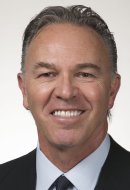
Anthony C. Arnold, MD
Dr. Arnold is professor and chief, Neuro-Ophthalmology Division, vice chair for education, Stein Eye Institute, Department of Ophthalmology, University of California, Los Angeles. He completed a residency in ophthalmology and a fellowship in neuro-ophthalmology at UCLA and joined the full-time faculty there in 1986. He is director, UCLA Optic Neuropathy Center, and has a research interest in ischemic and inflammatory optic neuropathies, with more than 100 publications.
He is co-editor of the text, Neuro-Ophthalmology: The Practical Guide and editor of the American Academy of Ophthalmology resident manual, Basic Principles of Ophthalmic Surgery.
He was the residency program director at UCLA 1994-2017 and has served as the president of the national AUPO Ophthalmology Program Directors Council 2000-2007. He served as a director of the American Board of Ophthalmology 2008-2016, chair of the ACGME Residency Review Committee for Ophthalmology from 2010-2016, ACGME Board of Directors 2015-2017, chair of the ACGME Ophthalmology Milestones Development Group 2010-2013, and president and past-chair of the Board of the North American Neuro-Ophthalmology Society 2008-2012.
Financial disclosure: I have/had an affiliation (financial or otherwise) with a profit and/or a not-for-profit organization:
- GenSight Biologics
- Pfizer Inc.
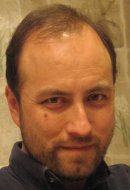
Jason Barton, MD, PhD, FRCPC
Dr. Barton obtained his MD from the University of British Columbia in 1984, where he completed a neurology residency in 1990. He was a fellow in neuro-ophthalmology at the University of Iowa from 1990 to 1991 and the University of Toronto from 1991 to 1995, and obtained his PhD from the University of Toronto in 1996. He was assistant and then associate professor of neurology at Harvard Medical School, and director of neuro-ophthalmology at the Beth Israel Deaconess Medical Center from 1996 to 2004.
Since 2004 he has been director of clinical neuro-ophthalmology at Vancouver General Hospital. He is currently professor, Canada Research Chair and Marianne Koerner Chair in Brain Diseases, in neurology, ophthalmology and visual sciences, and psychology at the University of British Columbia. His research is focused on cortical processing of vision, in particular high-level object perception, such as face and word recognition, and also on the use of saccadic eye movements to explore issues of cognitive control.
He has 304 publications to his credit, including 2 books, 51 chapters, and 216 research articles. He has received the Francis McNaughton Award from the Canadian Neurological Sciences Federation, the Young Investigator Award from the North American Neuro-ophthalmology Society, the Norman Geschwind Award in Behavioural Neurology from the American Academy of Neurology, and the Distinguished Achievement Award for Overall Excellence from the UBC faculty of medicine. He operates the website www.neuro-ophthalmology.ca, which was recognized by the American Academy of Neurology in 2011 as one of the best patient- and resident-education websites.
Financial disclosure: I do not have an affiliation (financial or otherwise) with a profit and/or a not-for-profit organization.
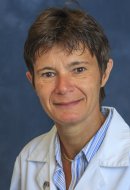
Valérie Biousse, MD
Dr. Biousse is the Cyrus H. Stoner Professor of Ophthalmology, professor of ophthalmology and neurology Emory University School of Medicine, where she is part of the neuro-ophthalmology service.
Dr. Biousse attended medical school in Paris, France, where she also obtained a master's in neurosciences. She trained in neurology and in stroke neurology in Paris, France; then trained in ophthalmology and neuro-ophthalmology at Emory University School of Medicine in Atlanta, Georgia. She is board certified in both neurology (France) and ophthalmology (USA).
Dr. Biousse is a fellow of the North American Neuro-Ophthalmology Society and of the French Society of Neurology and a member of the American Neurological Association, and multiple other national and international societies, including the American Academies of Ophthalmology and Neurology. She is an international delegate for the French Society of Ophthalmology where she represents the USA. Dr. Biousse serves on the Board of Directors of the North American Neuro-Ophthalmology Society (vice president).
She serves on the editorial board of Journal of Neuro-Ophthalmology and is section editor for the State of the Art Section. Dr. Biousse has over 400 publications, including scientific articles, book chapters and books, including the primary textbook Neuro-Ophthalmology and Walsh & Hoyt's Clinical Neuro-Ophthalmology, 6th Edition, 2005, and the didactic textbook Neuro-Ophthalmology Illustrated (Thieme, 2009 and 2016), which received two awards.
She is the neuro-ophthalmology fellowship director at Emory and she is also the chair of the Faculty Mentoring and Development Committee in the Department of Ophthalmology at Emory.
Dr. Biousse has a particular expertise in disorders of intracranial pressure, vascular disorders of the brain and eyes, neuro-ophthalmology education, and mentoring.
Financial disclosure: I have/had an affiliation (financial or otherwise) with a profit and/or a not-for-profit organization:
- GenSight Biologics
- Santhera Pharmaceuticals
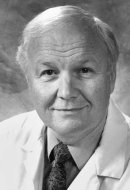
J. Raymond Buncic, MD, FRCSC
Dr. Buncic, a graduate of McGill University medical faculty (1965), interned at the Royal Victoria Hospital in Montreal. After one year pursuing internal medicine, he completed the ophthalmology program at U of Toronto, and fellowships in neuro-otology (U of T) and in neuro-ophthalmology in San Francisco with professor William F Hoyt. He joined the staff of the Hospital for Sick Children and the Toronto University Health Network (1972) as well as the Holland Bloorview Rehabilitation Hospital.
His special interests in pediatric neuro-ophthalmology have been optic nerve diseases, eye movement disorders and craniofacial anomalies. Dr Buncic served as the departmental chair at HSC from 1993 to 2003. He was awarded the Claud Worth Gold medal (BIPOSA), the honour award by the AAO, and the HSC Citizenship award by the medical and scientific staff. His students have included of over a hundred Fellows in pediatric ophthalmology alone and Residents at U of T since 1972.
Financial disclosure: I do not have an affiliation (financial or otherwise) with a profit and/or a not-for-profit organization.
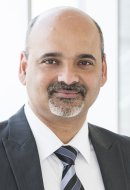
Santanu Chakraborty, MBBS, MRCP, DMRD, FRCR
Dr. Chakraborty is an associate professor in the Department of Radiology at the University of Ottawa. He is a diagnostic neuroradiologist with a special interest in quantitative MR imaging, acute stroke imaging, and spine intervention. He is also involved in projects on radiology informatics, quality control, and safety as well as appropriate utilization. He is strongly involved in clinical teaching of medical students, residents, and fellows and is the lead researcher in multiple research projects.
Financial disclosure: I have/had an affiliation (financial or otherwise) with a profit and/or a not-for-profit organization:
- Bayer
- GE
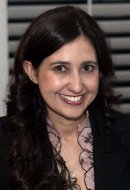
Helen V. Danesh-Meyer, MBChB, MD, PhD, FRANZCO
Professor Danesh-Meyer is the Sir William and Lady Stevenson Professor of Ophthalmology at the University of Auckland. She is head of academic neuro-ophthalmology and glaucoma.
Professor Danesh-Meyer is an ophthalmic surgeon and clinician-scientist who divides her professional activities almost equally between patient care activities and research. She has published more than 150 articles in peer-reviewed scientific papers, numerous chapters and several textbooks.
Professor Danesh-Meyer's research focus spans both clinical and basic science aspects of optic nerve disease with an emphasis on translational ophthalmology. Her clinical expertise includes imaging modalities in neuro-ophthalmology, giant cell arteritis, ischaemic optic neuropathies, the role of astrocytes in optic neuropathies, and glaucomatous optic neuropathy.
Professor Danesh-Meyer is currently co-editor of the Clinical Challenges Section of Survey of Ophthalmology. She has served on the Editorial Board of Ophthalmology and Journal of Clinical Neuroscience.
She has been chair of Scientific Programme Committee and a member of the Court of Examiners (2010-2017) for the Royal Australian and New Zealand College of Ophthalmologists (RANZCO). She is also the international representative on the Neuro-ophthalmology Section Committee for Basic and Clinical Science Course for the American Academy of Ophthalmology. Helen is also the Chair of Glaucoma New Zealand, a charitable trust for the prevention of blindness from glaucoma.
Financial disclosure: I have/had an affiliation (financial or otherwise) with a profit and/or a not-for-profit organization:
- Alcon Pharmaceuticals
- Allergan
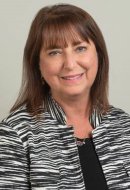
Lynn K. Gordon, MD, PhD
Dr. Gordon is professor of ophthalmology at the Jules Stein Eye Institute at UCLA, and the senior associate dean for Diversity Affairs at the David Geffen School of Medicine at UCLA.
Dr. Gordon graduated with honours from Stanford University and went on to complete her MD and PhD at Harvard completing her residency and fellowship training at UCLA.
She is an active clinician scientist and her work has resulted in multiple patents and more than 100 publications, book chapters, and reviews. She is passionate about education and teaches and lectures extensively on topics related to ophthalmology for the non-ophthalmologist and neuro-ophthalmology. She serves on the editorial boards for Ophthalmology Retina, Journal of Neuro-ophthalmology, and the Journal of Ocular Immunology and Inflammation.
Dr. Gordon had held leadership positions in several state and national professional organizations and is currently a member of the Board of Trustees and Chair of the Council of the American Academy of Ophthalmology.
Financial disclosure: I have/had an affiliation (financial or otherwise) with a profit and/or a not-for-profit organization:
- American Academy of Ophthalmology
- National Institutes of Health
- University of California, Los Angeles
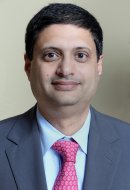
Rustum Karanjia, MD, PhD, FRCSC
Dr. Karanjia is a neuro-ophthalmologist at the University of Ottawa Eye Institute. Having completed his medical training and PhD in Canada he completed a fellowship in neuro-ophthalmology at UCLA. He is actively involved in clinical trials and is a board member for the International Foundation on Optic Nerve Disease and LHON Canada.
Dr. Karanjia obtained both his doctorates - in philosophy and medicine - from Queen's University and completed his residency in ophthalmology at the University of Ottawa. He is currently an assistant professor and vice-chair (research) at the University of Ottawa and holds the Junior Clinical Research Chair Fellowship for ophthalmology.
Financial disclosure: I have/had an affiliation (financial or otherwise) with a profit and/or a not-for-profit organization:
- GenSight Biologics
- BioElectron
- Stealth Biotechnology
- United Mitochondrial Disease Foundation
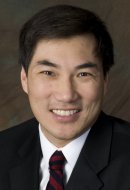
Andrew G. Lee, MD
Dr. Lee completed medical school at the University of Virginia (Alpha Omega Alpha); ophthalmology residency (chief resident) at Baylor College of Medicine (BCM), and neuro-ophthalmology fellowship at the Johns Hopkins Hospital. He is chair of the Blanton Eye Institute at Houston Methodist Hospital and professor of ophthalmology, neurology, and neurosurgery (Weill Cornell Medicine); adjunct professor; University of Iowa; Baylor College of Medicine and Texas A and M; clinical professor at UTMB (Galveston), UT MD Anderson Cancer Center, and University of Buffalo, SUNY.
Dr. Lee has served on the editorial board of 25 journals including JAMA Ophthalmology, AJO, CJO, JJO, APJO, JNO, Survey of Ophthalmology and Eye. He has published over 400 peer-reviewed publications, 40 book chapters, and nine full textbooks; has been the invited speaker at over 400 national and international eye meetings; and has given 13 named lectureships. He has received the AAO honour, senior honour, secretariat, and life honour achievement awards. Dr. Lee has received the resident teaching award seven times at five different academic institutions.
Financial disclosure: I do not have an affiliation (financial or otherwise) with a profit and/or a not-for-profit organization.
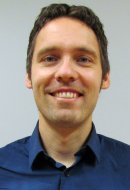
Daniel Lelli, MD, FRCPC
Dr. Lelli is an assistant professor in medicine (neurology) at the University of Ottawa. He completed an engineering degree (2000) and worked briefly in the field producing several patents and helping to teach undergraduate engineering courses. In 2005 he changed career paths and completed medical school (McMaster 2008), neurology residency (University of Ottawa 2013), and pursued a neuro-ophthalmology fellowship at the University of British Columbia until June 2014. He joined The Ottawa Hospital afterwards, with a clinical focus in neuro-ophthalmology, neuro-otology (co-founder of the TOH Multidisciplinary Dizziness clinic) and stroke.
Dr. Lelli has maintained a strong commitment to education throughout his early career, is a graduate of the Healthcare Education Scholars Program at uOttawa, is context expert for the undergraduate neurology curriculum at uOttawa since 2014, and is the current Adult Neurology Residency Program director at uOttawa. His clinical and research interests lie in neuro-otology and medical education.
Financial disclosure: I do not have an affiliation (financial or otherwise) with a profit and/or a not-for-profit organization.
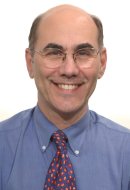
Neil R. Miller, MD, FACS
Dr. Miller attended Harvard University, where he majored in biochemistry, graduating magna cum laude in 1967. He then matriculated to Johns Hopkins Medical School. After finishing medical school in 1971, he had an internship in internal medicine at Johns Hopkins, followed by an ophthalmology residency at the Wilmer Eye Institute and a fellowship in neuro-ophthalmology at the University of California, San Francisco, with Dr. William F. Hoyt.
Dr. Miller joined the staff of the Wilmer Eye Institute of the Johns Hopkins Hospital in 1975 and has been a faculty member at Johns Hopkins since then. He is currently professor of ophthalmology, neurology, and neurosurgery at the Johns Hopkins Medical Institutions, and also the Frank B. Walsh Professor of Neuro-Ophthalmology. He has been Chair of the Wilmer Resident Selection Committee for over 30 years. He is also chair of the Associate Professor Reappointment Review Committee for the Johns Hopkins Medical Institutions.
Dr. Miller was president of the North American Neuro-Ophthalmology Society from 2000 to 2002 and chair of its Executive Board from 2002 to 2004. He has been past president of the International Neuro-Ophthalmology Society on three occasions: in 1982, 1992, and 2008. He is also an emeritus member of the International Orbital Society. In 2009, he was given the Lifetime Achievement Award by the American Academy of Ophthalmology (AAO).
Dr. Miller was book and media editor of the American Journal of Ophthalmology for 5 years. He currently is a member of the editorial board of the Journal of Neuro-Ophthalmology and serves as section editor for the CPC Section of the journal. He has served as a reviewer for numerous journals, including the American Journal of Ophthalmology, Ophthalmology, the British Journal of Ophthalmology, Lancet, Neurology, JAMA, JAMA Ophthalmology, Journal of Neurosurgery, and the New England Journal of Medicine.
He has authored or co-authored over 500 articles, 93 chapters, and 13 books, including the 4th edition of Walsh and Hoyt's Clinical Neuro-Ophthalmology. With Dr. Nancy Newman of Emory University, he also edited the 5th edition of this textbook, and the two of them also wrote an abbreviated version of the textbook Walsh and Hoyt's Clinical Neuro-Ophthalmology: The Essentials. The 6th edition of the full textbook, again edited by Drs. Miller and Newman with the assistance of two of their colleagues was published in December, 2004, and the second edition of The Essentials was published in 2008. A third edition, co-authored with Prem Subramanian and Vivek Patel, was published in the fall of 2015, and a fourth edition is scheduled to be published in 2020. Dr. Miller also has co-authored with Anthony Pane in Australia Michael Burdon of the UK and Michael Burdon in the UK The Neuro-Ophthalmology Survival Guide. The first edition of this textbook, designed for medical students, residents, and general ophthalmologists, was published in 2007 and a second edition was published in 2017.
Dr. Miller has spoken at numerous local, national, and international meetings and has given 59 named lectures around the world, including the Jackson Memorial Lecture at the 2001 meeting of the AAO, the Hoyt lecture at the 2005 meeting of the AAO, the Doyne Lecture at the Oxford Congress in the UK in 2006, the Francis Heed Adler lecture at the University of Pennsylvania in 2009, the Jose Cuna Vaz Lecture in Portugal in 2012, the Morris Bender lecture at Mt. Sinai Medical Center in New York City in 2013, the Optic UK Lecture at the 2014 meeting of the Royal College of Surgeons in Birmingham, England, the Stanley Truhlsen Lecture at the University of Nebraska Medical Center in 2014, the Barry Cullen Lecture in Singapore in 2015, and the EUNOS Lecture in 2017. Many of Dr. Miller's previous Fellows and residents hold faculty positions at major institutions throughout the United States and around the world.
Financial disclosure: I have/had an affiliation (financial or otherwise) with a profit and/or a not-for-profit organization:
- EMMES Corporation
- National Institutes of Health
- Quark Pharmaceuticals
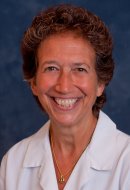
Nancy J. Newman, MD
Dr. Newman is the LeoDelle Jolley Professor of Ophthalmology, professor of ophthalmology and neurology and instructor in neurological surgery at the Emory University School of Medicine, where she serves as the director of neuro-ophthalmology. She attended Princeton University, the University of London on a Marshall Scholarship, and Harvard Medical School. She trained in internal medicine and neurology at the Massachusetts General Hospital where she was chief resident in neurology, and in neuro-ophthalmology at the Massachusetts Eye and Ear Infirmary.
She is a fellow of the American Academy of Neurology, the American Neurological Association, and the North American Neuro-Ophthalmology Society. She was president of the North American Neuro-Ophthalmology Society from 2014 to 2016 and chair of the Board of Directors from 2016 to 2018.
She served on the editorial boards of the American Journal of Ophthalmology, Seminars in Neurology, Journal of the Neurological Sciences and the Journal of Neuro-Ophthalmology. She has over 450 publications, including scientific articles, book chapters and books, including the primary textbook in neuro-ophthalmology, Walsh & Hoyt's Clinical Neuro-Ophthalmology, 5th and 6th editions, and the popular manual Neuro-Ophthalmology Illustrated, 1st and 2nd editions, which she co-authored with Dr. Valerie Biousse.
She has lectured widely throughout the world and is known for her innovative teaching style. Her main research interests include disorders of the optic nerve and mitochondrial diseases. She is a Trustee Emerita of the Board of Trustees of Princeton University and recently served as president of the Princeton University Alumni Association.
Financial disclosure: I have/had an affiliation (financial or otherwise) with a profit and/or a not-for-profit organization:
- GenSight Biologics
- Multiple Law Firms (Private medical-legal consulting)
- Quark Pharmaceuticals
- Santhera Pharmaceuticals
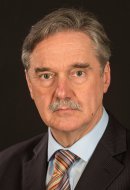
Gordon T. Plant, MA, MD, FRCP, FRCOphth
Dr. Plant took the Medical Sciences Tripos in Cambridge in 1974 with a first in physiology and, on the way, acquired an interest in vision. Undergraduate clinical medicine at St Thomas' Hospital followed, qualifying in 1977. After completing his postgraduate training in medicine, he returned to Cambridge for 2 years in clinical neurology then returning to physiology for three years supported by the Welcome Trust studying the visual deficit in optic neuritis. During this period, he began weekly visits to Moorfields Eye Hospital to attend Ian MacDonald's neuro-ophthalmology clinic. Further clinical training in neurology at the National Hospital for Neurology in Queen Square was followed by a year as a Medical Research Council Travelling Fellow at the Smith Kettlewell Research Institute in San Francisco where he studied visual motion perception with Ken Nakayama. He also took the opportunity to spend time with Bill Hoyt at UCSF. Since 1991 he has been a consultant in neurology to the National Queen Square, St Thomas' and Moorfields. His work has been as a full-time NHS Consultant but he has found time for research with over 300 articles to his credit and an h-index of 70. Dr. Plant retired from the NHS in March 2018 but was re-employed in the same job 24 hours later.
Financial disclosure: I do not have an affiliation (financial or otherwise) with a profit and/or a not-for-profit organization.
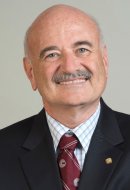
Alfredo A. Sadun, MD, PhD
Dr. Sadun holds the Flora L. Thornton Endowed Chair at Doheny Eye Centers-UCLA and is vice-chair of ophthalmology at UCLA. He graduated from MIT (1972) and received his PhD and MD degrees at the Albert Einstein College of Medicine in 1976 and 1978. He completed a residency in ophthalmology at Harvard Medical School and, after a fellowship in neuro-ophthalmology, joined the full-time faculty at Harvard, Department of Ophthalmology in 1983. He was recruited to Doheny/USC where he stayed for 30 years. He helped lead Doheny in its transition to Doheny/UCLA in 2014.
Dr. Sadun actively pursues and has received the greatest distinction in all three classical academic missions. His research in vision was honoured by the lifetime achievement award from Lighthouse International, the 1999 Pisart Award. His contributions to residency teaching in ophthalmology were honoured by the AAO and AUPO highest award for education, the 2002 Straatsma Prize. In 2012, Dr. Sadun received the Hoyt Award, the highest prize offered in clinical neuro-ophthalmology, given jointly by the AAO and NANOS. He also received the prestigious Heed Award for Academic Excellence at the AAO meetings in 2014 and Albert Einstein College of Medicine's highest honor for contributions in science and medicine, the Purpura Prize, in 2016. He was a recipient of the AAO Life Achievement Award, 2017.
Dr. Sadun is an international authority in neuro-ophthalmology, especially diseases of the optic nerve. He has published over 340 peer-reviewed articles and 80 book chapters and has co-authored or edited four books. He has been cited over 25,000 times with an H-factor of over 60. He is member of the editorial board of IOVS and peer-reviews regularly for about 15 journals. He has received funding from the NIH for over 25 years and holds five patents. His scholarly achievements have been recognized by several organizations including the Research for the Prevention of Blindness (RPB) James Adams Scholar Award, RPB Senior Investigator Award, AAO Honor Award, Senior Honor Award and Life Achievement Award, Secretariat Award and ARVO Fellow Award.
Dr. Sadun served on and chaired the national Residency Review Committee (RRC) of the ACGME for ophthalmology. Dr. Sadun was an organizer for ophthalmology residency programs directors and became the first president of the AUPO Program Directors' Council and was the inaugural recipient of the Straatsma Award. Dr. Sadun has a clinical practice in neuro-ophthalmology with a special emphasis on diseases of the optic nerve.
Dr. Sadun maintains an active laboratory at the Doheny Vision Research Center. This research has focused on clinical, psychophysical, and laboratory studies of diseases of the optic nerve. In the 1980s, Dr. Sadun was among the first to apply a new tract-tracing technique to establish nine anatomical pathways between the eye and various parts of the brain. He was the first to describe a human retinal projection to the hypothalamus that subserves the visual entrainment of the circadian rhythm. Dr. Sadun was the first to identify an optic neuropathy associated with Alzheimer's disease. In 1993, he was selected and sponsored by the United Nations to lead an investigative team to determine the cause of an epidemic of optic neuropathy in Cuba. This work led to further investigations into the role of mitochondria in optic neuropathies due to injury from nutritional, toxic and genetic causes. Dr. Sadun has led 17 annual international field investigations in Brazil to study the world's largest occurrence of Leber's Hereditary Optic Neuropathy. In these and other studies, he has investigated the role of mitochondria in the brain, optic nerve, and retina.
Financial disclosure: I have/had an affiliation (financial or otherwise) with a profit and/or a not-for-profit organization:
- GenSight Biologics
- Stealth BioTherapeutics
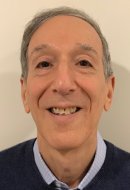
David Zackon, MD, FRCSC
Dr. Zackon is an associate professor of ophthalmology at the University of Ottawa. He completed his residency training in ophthalmology in Ottawa followed by fellowship training in neuro-ophthalmology at the University of Iowa and at the University of Toronto. He has been in practice in Ottawa since 1983.
Financial disclosure: I do not have an affiliation (financial or otherwise) with a profit and/or a not-for-profit organization.
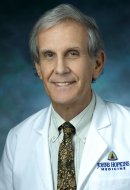
David Zee, MD
Dr. Zee came to Johns Hopkins in 1965 as a medical student. After finishing a neurology residency at Johns Hopkins, he joined the neurology faculty in 1975. He has been coauthor of five editions of The Neurology of Eye Movements with Dr. R. John Leigh. He received the Ottorino Rossi prize from the University of Pavia, the Hallpike-Nylen medal and Bárány gold medal from the University of Uppsala and the Koetser Brain Research Prize in Zurich. He has received the Hopkins life-time achievement award for biomedical education. He gave inaugural lectures named for Swithin Meadows, Houston Merritt, Alfred Kestenbaum and James Sharpe. He was the inaugural Visiting Neurology Educator at the Mayo Clinic and received the inaugural Frank Ford Award for Neurology resident teaching. He was designated a "Champion of Vestibular Medicine" by the Vestibular Disorders Association of America. He has had continuous NIH funding since 1975. He has had numerous trainees and has over scientific 470 publications.
Financial disclosure: I have/had an affiliation (financial or otherwise) with a profit and/or a not-for-profit organization:
- Abbott
- National Institutes of Health
|